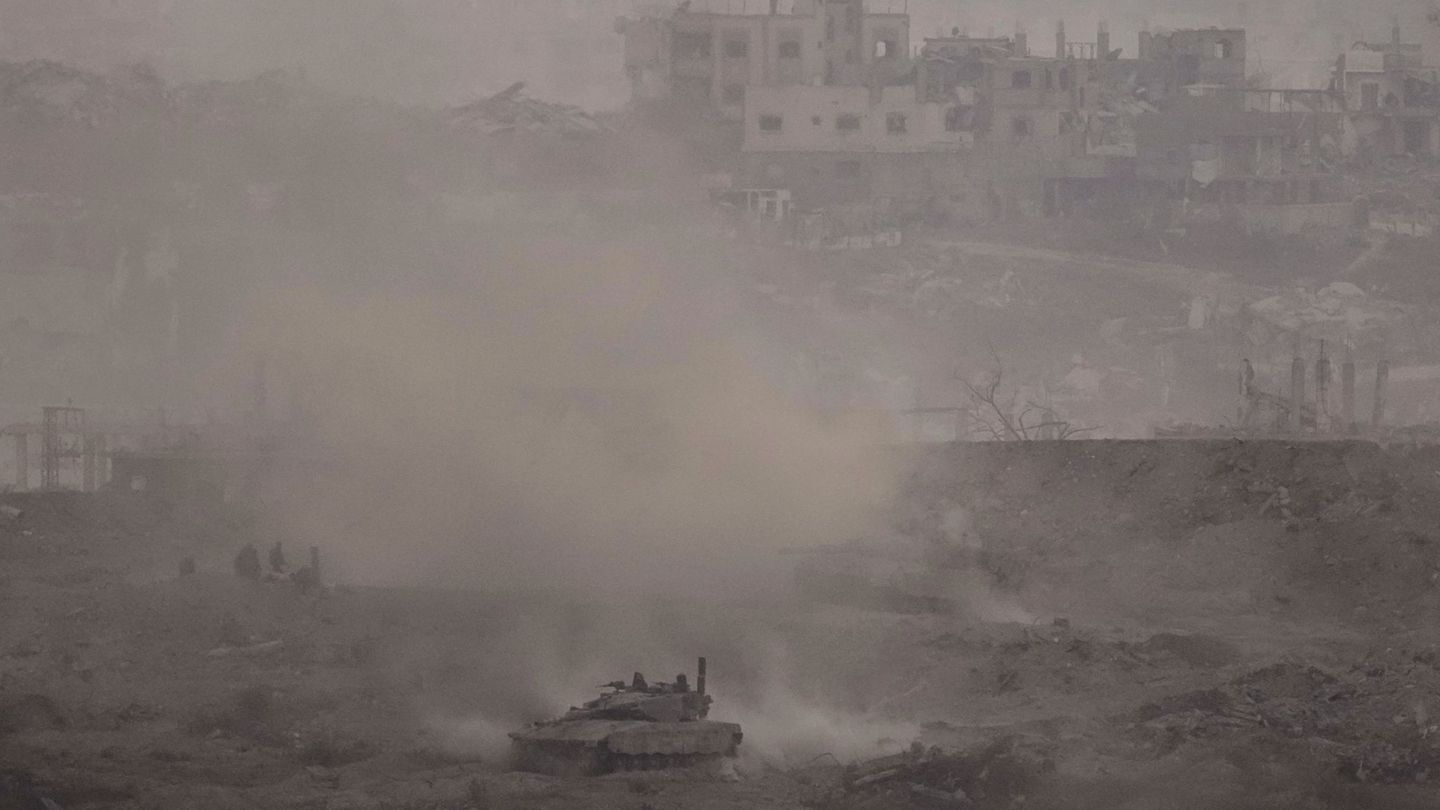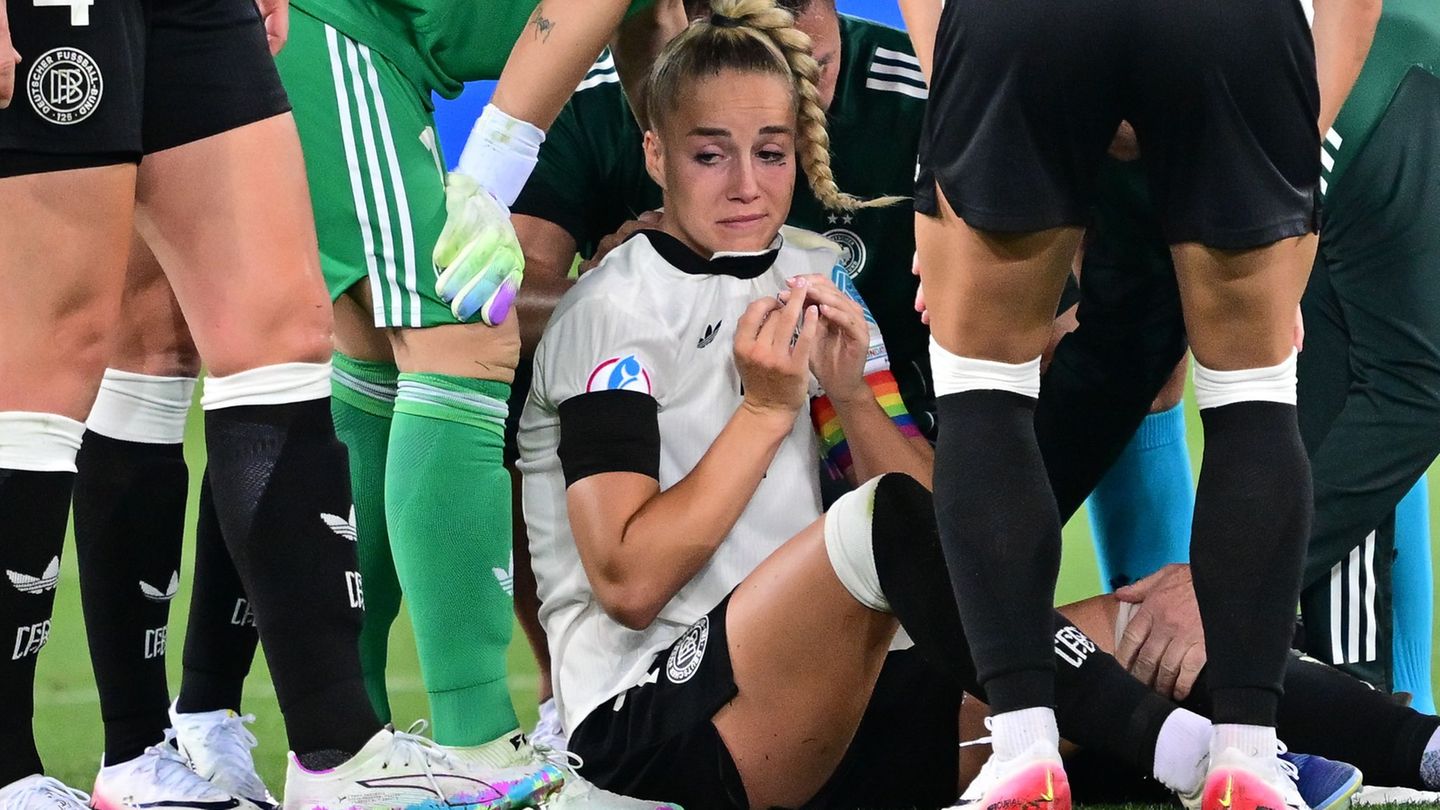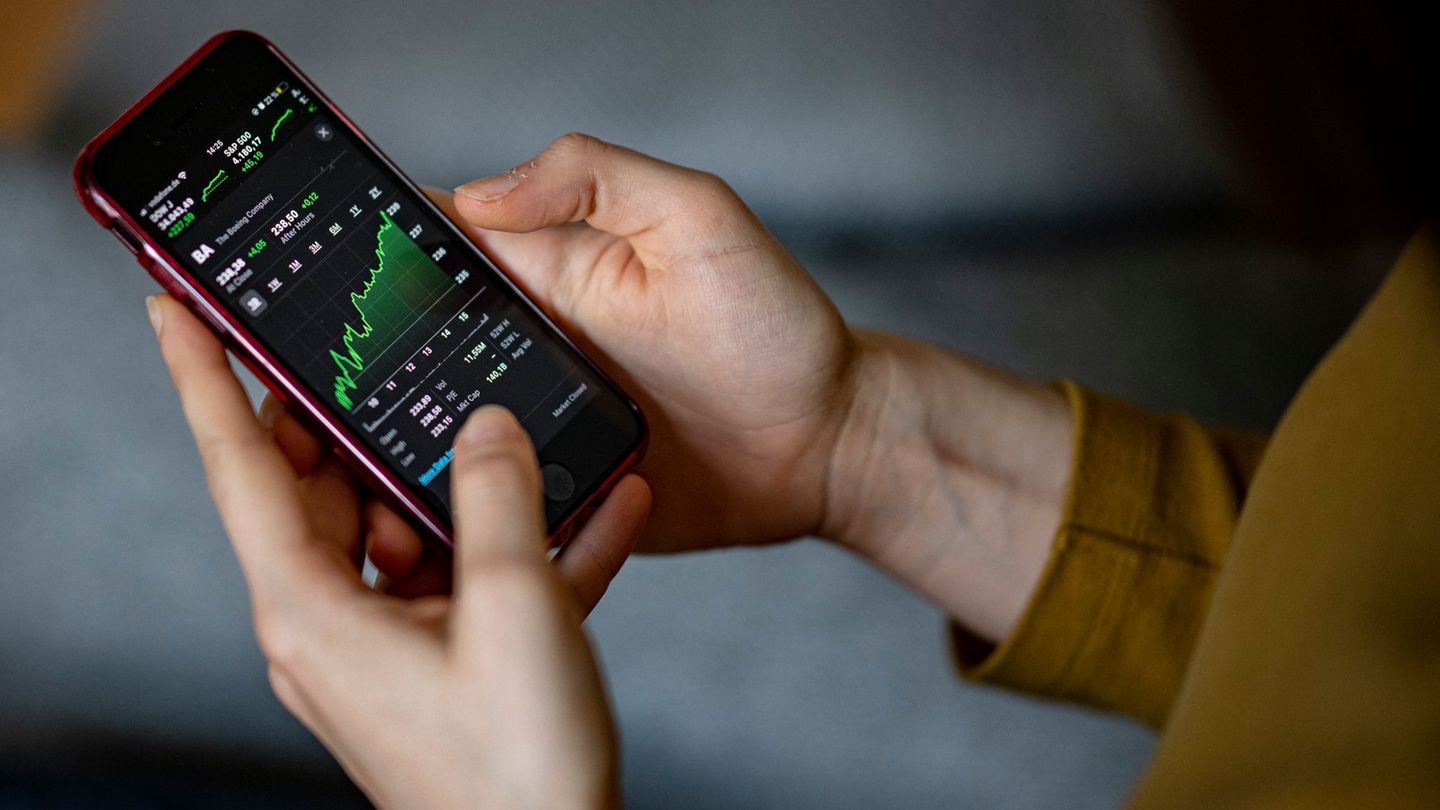Anke Engelke and Bastian Pastewka talk about their new series, the separation of friendship and work and future projects.
Anke Engelke (58) and Bastian Pastewka (52) can be seen in their first joint fictional series from August 15th: “Perfectly Missed” starts on August 15th on Prime Video. In it, the two play the singles Maria and Ralf, who live in the small town of Marburg and have never met, although they are a perfect match. In an interview with the news agency spot on news, the two actors explain how the idea for the series came about and why Marburg was the perfect filming location. The actors, who have been friends for many years, also reveal what it was like for them to portray a supposed couple in love and whether they will appear as a comedy duo again in the future.
You have appeared in front of the camera together several times. What was different about your collaboration on your first fictional series?
Anke Engelke: So far we have been seen together in smaller formats. I was a guest on “Pastewka” and Bastian on “Ladykracher” and of course we were part of the ensemble of the “Wochenshow” at the end of the 90s. But in these formats we were never given dramatic arcs. With Wolfgang and Anneliese we occasionally made up backstories about their past and their careers. But there was never really a complex narrative thread. That is the essential difference, that this time we really wanted to tell a story.
How did the idea for the series come about?
Engelke: In October 2020, Bastian and I rented a conference room – with as much distance as possible because of the pandemic. We asked ourselves: “What have we already done together and what would we like to do together again?” The “again” then disappeared: “What would we like to do together?” We were already having fun together, so we looked for other genres that interested us. Basti watches a lot more crime or science fiction, I’m less interested in all that. At the end of the week we came to the conclusion that love should be the topic. And then Basti came up with the brilliant idea: “What if they don’t meet at all, if they don’t know each other?”
Bastian Pastewka: And Anke said: “We’re calling the series ‘Never ever’.” That was our working title. We let two or three weeks pass and met again. We both noticed that we were really hooked on this idea. Then it was a question of: Who are we? Where are these characters from? Marburg was immediately decided as the location of the action.
Why this city?
Pastewka: Marburg has a city center that can be reached with two elevators. I had this image in my mind of the elevators from the lower to the upper town passing each other with our characters in them.
Engelke: You also liked the picturesqueness of Marburg, I didn’t know the city before. It was important for the series that it wasn’t a big city. And not because we already know Berlin, Munich, Hamburg and Cologne and all of that seems to be crazy and overused, but also because of the idea: where does normal life take place? A large proportion of people here in Germany don’t live in a big city and we wanted to deal with that.
Pastewka: The exciting thing about it is: how unlikely is it that two people in this small town with its small half-timbered houses don’t run into each other? It’s obvious that you can’t miss a sports shop or a bookshop. So we did a big improbability calculation and built a little narrative puzzle. There is no scene that is interesting for its own sake, but rather it always has a connection: Maria and Ralf have an overlap through mutual friends without knowing it. Jochen, for example, is Maria’s father’s carer and Ralf’s best friend. We planted a lot in the front that we could harvest in the back.
How was the filming in the city?
Pastewka: We thank the people from the Marburg city council, who had to close streets for us, put up announcements or had the fair from our first episode set up especially for us, on our knees for putting in so much effort. There was a lot of responsibility and logistics behind it.
Engelke: We’ve already filmed a lot and have a lot under our belt. But I’ve never experienced anything like this. A lovely colleague from the city of Marburg really knew about film and knew exactly what to block and when, what to register where and when when we arrived with our ten trailers. It’s unbelievable how much enthusiasm, heart, understanding, patience and competence was used to help us. I would be so happy if people now wanted to travel to Marburg because of the series.
What was important to you about your two characters Maria and Ralf?
Pastewka: We thought it was good that the characters have already been through a lot and, despite these experiences, are now suddenly faced with a kind of new beginning. Maria realizes that she has missed a few opportunities, for example writing a book or resolving the conflict with her rival. She also has a love triangle on her hands. Ralf, on the other hand, has two daughters and is going through a divorce. We also have a whole universe of characters, because it is not just a joint series by Engelke and Pastewka, but an ensemble series. All of the characters have their own background, including the divorce lawyer from the first episode, who appears again at the end.
Did you find it strange to imagine playing a supposed couple in love?
Engelke: No, not at all. We can separate the fact that we are friends but have to act for the series, that there is more between us than friendship. I think that was the least of our worries. I was much more scared that we were in such a responsible position. We were part of the executive producer team, we sat in the so-called writers’ room. I thought at times: “Oh God, I’m doing something here that I’m not actually capable of.” (laughs)
You like to make each other laugh. How difficult was it to stay serious?
Engelke: There are enough people on set who don’t find it funny when we do stupid things and hold everything up. A lot of things are choreographed and you don’t have time because, for example, the lights go out or a rain shower is coming.
Pastewka: As I said, all the scenes have a meaning and are part of the puzzle. It wasn’t as if we had the time or the desire to experiment a lot and break out of our characters. You serve the piece, that’s what a specific series like this is about.
Engelke: We really paid attention to that. We had such great people on the team who, if in doubt, wouldn’t have said: “Could you go a bit faster or could you fool around a bit less?” They wouldn’t have the courage to say that to us because they just think we’re funny, which I don’t hold against anyone (laughs).
Did you learn anything about each other during filming?
Engelke: I learned from Basti, for example, that he could be a good director. He has such a keen nose and a good sense of timing and dramaturgy. He sees how the characters develop. In the writers’ room, I noticed how, when developing a scene, he has an early view of what will happen at the end. I’ve never experienced that with him before. I couldn’t really get those arcs right. On set, too, I’m more of a moment person. I want to feel something in that moment and then I can play it.
Pastewka: Anke is much more daring. She takes on complicated tasks immediately. She is the first to say: “That sounds really exhausting. When does it start?” And she is incredibly precise when it comes to finding her characters. In “Perfectly Missed” the tousled hair and the nose piercing were really important to her.
Engelke: I need a biography like that and I have to tell, without verbalizing it, what kind of past the role might have had. I want to be a projection surface. I want people to beam something onto it and say: “Yes, I know people like that, I was once a madwoman and a little crazy.”
Pastewka: Unfortunately, that’s not possible for me because I only have one face (laughs). At least we decided: this time I’m going to have a beard. Our camerawoman turned down my request for glasses because of the reflection. But I’m grateful that I didn’t get a nose piercing or a new head of hair every day. I just slipped into my sports vest.
And what do you have in common at work?
Engelke: It is well known that we are both nerds, and that is always unpleasantly noticeable, most recently on ‘LOL’, where someone said: “What have they prepared?” Free spirits like Teddy or Kurt Krömer have nothing in their pockets and still pull something out, that’s the injustice of the world, how talented they are. The two of us just have to practice until we get No.
Pastewka: I think that we are both sometimes accused of being difficult. I defend myself by saying that it is always in the service of the cause.
One fictional series is now complete. What other joint projects can you imagine, a podcast perhaps?
Engelke: We’re both already pretty busy with podcasts.
Pastewka: At the moment, it is so nice to have this series that it is impossible to immediately start another “untitled Engelke-Pastewka project”.
Engelke: What is certain is that we are not narrowing our focus and only want to play one role. Instead, we are opening up and letting everything go through. It is great what people keep trusting us to do, including creative things. Basti recently filmed things that he perhaps would not have even thought of two years ago, and a lot has happened to me in between, and not because I said in an interview what I would like to play.
Would you bring back a successful duo like Jenny and Mel or Wolfgang and Anneliese?
Engelke: We’re not committing ourselves to that. I think we’ll say: not right now, but who knows, someday? Shortly before ‘LOL’ we also thought: what about Wolfgang and Anneliese? But they’re never gone, they’re not out, they lead a life of their own.
Pastewka: You still have it in your body, you can switch to it immediately: Servus, macht’s guat!
Source: Stern
I am an author and journalist who has worked in the entertainment industry for over a decade. I currently work as a news editor at a major news website, and my focus is on covering the latest trends in entertainment. I also write occasional pieces for other outlets, and have authored two books about the entertainment industry.




